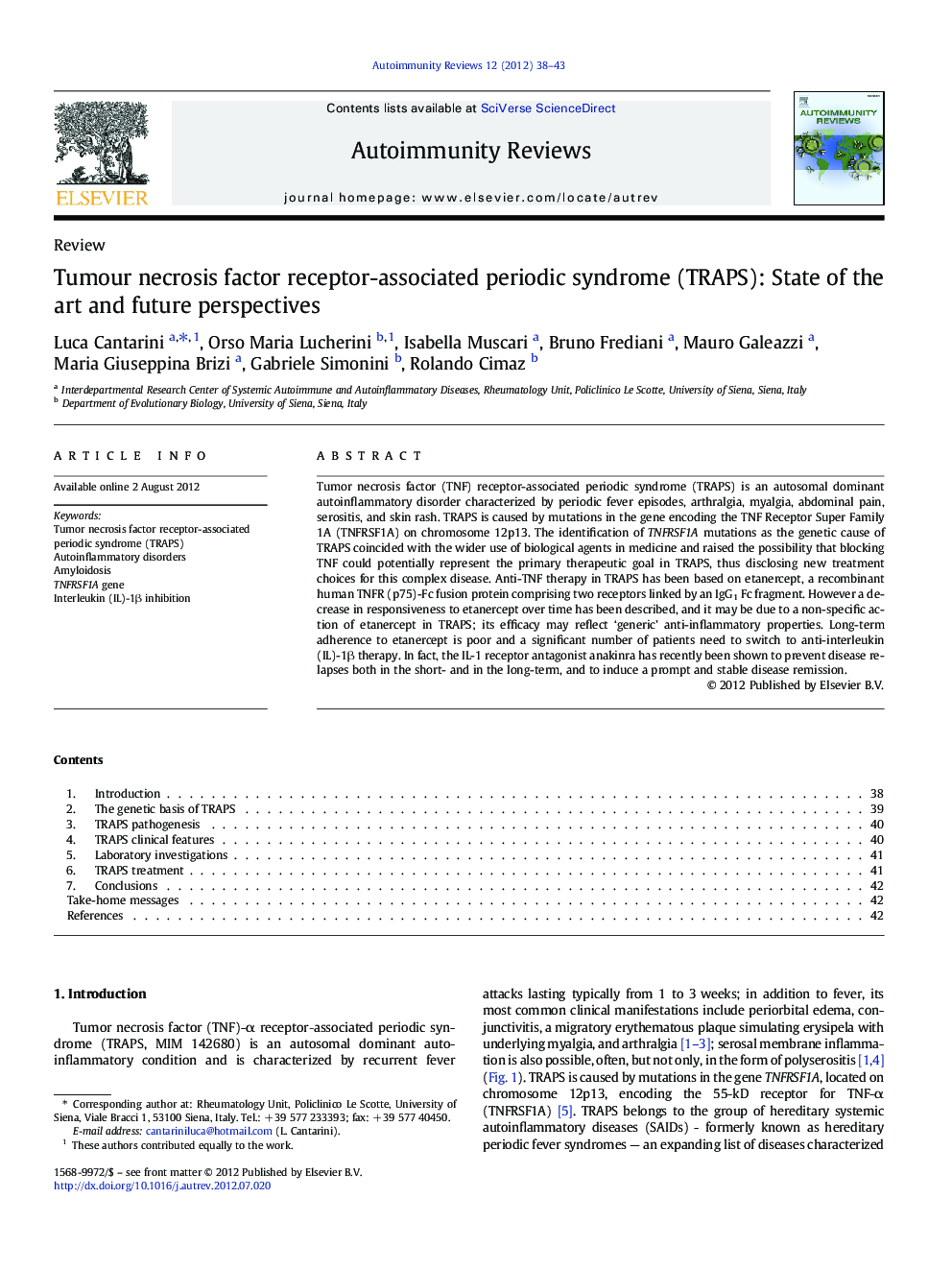| Article ID | Journal | Published Year | Pages | File Type |
|---|---|---|---|---|
| 3341764 | Autoimmunity Reviews | 2012 | 6 Pages |
Tumor necrosis factor (TNF) receptor-associated periodic syndrome (TRAPS) is an autosomal dominant autoinflammatory disorder characterized by periodic fever episodes, arthralgia, myalgia, abdominal pain, serositis, and skin rash. TRAPS is caused by mutations in the gene encoding the TNF Receptor Super Family 1A (TNFRSF1A) on chromosome 12p13. The identification of TNFRSF1A mutations as the genetic cause of TRAPS coincided with the wider use of biological agents in medicine and raised the possibility that blocking TNF could potentially represent the primary therapeutic goal in TRAPS, thus disclosing new treatment choices for this complex disease. Anti-TNF therapy in TRAPS has been based on etanercept, a recombinant human TNFR (p75)-Fc fusion protein comprising two receptors linked by an IgG1 Fc fragment. However a decrease in responsiveness to etanercept over time has been described, and it may be due to a non-specific action of etanercept in TRAPS; its efficacy may reflect ‘generic’ anti-inflammatory properties. Long-term adherence to etanercept is poor and a significant number of patients need to switch to anti-interleukin (IL)-1β therapy. In fact, the IL-1 receptor antagonist anakinra has recently been shown to prevent disease relapses both in the short- and in the long-term, and to induce a prompt and stable disease remission.
